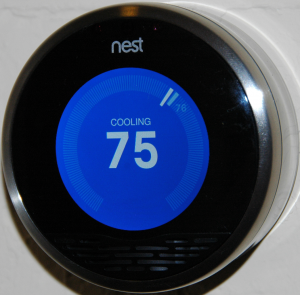I admit it. I’m something of a connoisseur of fraud, particularly technology fraud.I’m fascinated by it. That’s why I have not been able to keep my eyes off the unfolding story of Thernos. Theranos was a company formed to do blood testing with minute quantities of blood. The founder, who dropped out of Stanford to pursue her idea, imagined blood testing kiosks in every drugstore, making testing ubiquitous, cheap, safe, painless. It all sounds pretty great in concept, but it seemed to me from the very start to lack an important hallmark of seriousness: evidence of a thoughtful survey of “why hasn’t this happened already?”
There were plenty of warning signs that this would not work out, but I think what’s fascinating to me is that the very same things that set off klaxons in my brain lured in many investors. For example, the founder dropped out of school, so had “commitment,” but no technical background in the art she was promising to upend. Furthermore, there were very few medical or testing professionals among her directors. (There was one more thing that did it for me: the founder liked to ape the presentation style and even fashion style of Steve Jobs. Again, there were people with money who got lured by that … how? The mind boggles.)
Anyway, there is, today, a strange current of anti-expert philosophy floating around Silicon Valley. I don’t know what to make of it. They do have some points. It is true that expertise can blind you to new ideas. And it’s also true that a lot of people who claim to be experts are really just walking sacks of rules-of-thumb and myths accreted over unremarkable careers.
At the same time, building truly innovative technology products is especially hard. I’m not talking about applying technology to hailing a cab. I’m talking about creating new technology. The base on which you are innovating is large and complex. The odds that you can add something meaningful to it through some googling seems vanishingly small.
But it is probably non-zero, too. Which means that we will always have stories of the iconoclast going against the grain to make something great. But are those stories explanatory? Do they tell us about how innovation works? Are they about exceptions or rules? Should we mimic successful people who defy experts, by defying experts ourselves, and if we do, what are our chances of success? And should we even try to acquire expertise ourselves?
All of this brings me to one of my favorite frauds in progress: Ubeam. This is a startup that wants to charge your cell phone, while it’s in your pocket, by means of ultrasound — and it raised my eyebrows the moment I heard about it. They haven’t raised quite as much money as did Theranos, but their technology is even less likely to work. (There are a lot of reasons, but they boil down to the massive attenuation of ultrasound in air, the danger of exposing people to high levels of ultrasound, the massive energy loss from sending out sound over a wide area, only to be received over a small one [or the difficulty and danger of forming a tight beam], the difficulty of penetrating clothes, purses, and phone holders, and the very low likelihood that a phone’s ultrasound transducer will be positioned close to normally with respect to the beam source.) And if they somehow manage to make it work, it’s still a terrible idea, as it will be grotesquely inefficient.
What I find so fascinating about this startup is that the founder is ADAMANT that people who do not believe it will work are just trapped in an old paradigm. They are incapable of innovation — broken, in a way. She actively campaigns for “knowledge by Google” and against expertise.
As an engineer by training and genetic predisposition, this TEDx talk really blows my mind. I still cannot quite process it:

